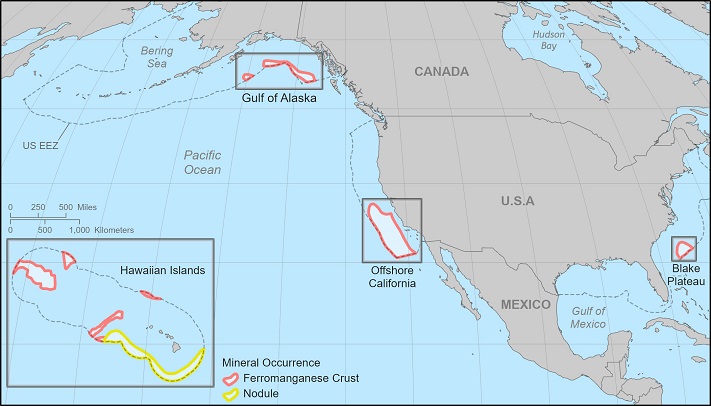The Metals Company may be the first company – commercial or state-owned – in the world to start full-scale deep-sea mining. That makes their quarterly and annual reports a well-worth read, and while their latest did not disappoint in terms of operational highlights, it was equally interesting to read the “Industry Update” bullet points.
It was hard not to notice that several events have occurred in the US in the past few months, a country that has seemingly not played a major role in the fast-evolving deep-sea minerals space.
Three major developments have occurred at high political levels, which could ultimately enable American production and processing of marine minerals.
First, in March, legislation was introduced in the US House of Representatives, calling for the US to “support international governance of seafloor resource exploration and responsible polymetallic nodule collection by allied partners”, and to “provide financial, diplomatic, or other forms of support for seafloor nodule collection, processing and refining.”
The two congress members that introduced the bill, the Responsible Use of Seafloor Resources Act, stated that the legislation may reduce supply chain vulnerabilities, particularly concerning China’s dominance of the global critical minerals supply chain, while bolstering American manufacturing and jobs.
Second, the 2024 National Defense Authorization Act with the inclusion of provisions directing the US Department of Defense to submit a report regarding the domestic processing of seafloor nodules, was passed into law in January. The Pentagon was expected to submit such a report on March 1st. It has since been reported that the Congress will fund a study on this topic.
Third, in March, a large group of former US government officials and military officers urged US senators to ratify the United Nations Convention of the Law of the Sea (UNCLOS). While the US recognizes the treaty, they have yet to ratify it.
Until the US ratifies UNCLOS, they are not able to become a member of the International Seabed Authority (ISA), precluding them from taking an active role in developing and adopting regulations concerning the exploitation of mineral resources in international waters managed by ISA (“the Area”).
Nor are they able to sponsor companies. Companies wanting to explore mineral resources in the Area may obtain licenses by forming partnerships with (being sponsored by) ISA member states. For instance, TMC has partnerships with The Republic of Nauru, The Kingdom of Tonga, and The Republic of Kiribati for its exploration licenses in the Clarion-Clipperton Zone in the Pacific Ocean. The Authority is expected to complete and adopt necessary mining regulations by 2025.
Even if the US decides against ratifying the UNCLOS, they may still move forward with plans for domestic exploitation of marine minerals, or build processing capacity to receive ore from international waters.
A recent study published in Frontiers in Marine Science highlights four deep ocean regions of the US Exclusive Economic Zone expected to contain mineral resources: the Blake Plateau, the Hawaiian Islands, Offshore California, and the Gulf of Alaska. The regions are expected to contain ferromanganese crusts and polymetallic nodules.


![var rnd = window.rnd || Math.floor(Math.random()*10e6);
var pid980600 = window.pid980600 || rnd;
var plc980600 = window.plc980600 || 0;
var abkw = window.abkw || '';
var absrc = 'https://servedbyadbutler.com/adserve/;ID=188736;size=0x0;setID=980600;type=js;sw='+screen.width+';sh='+screen.height+';spr='+window.devicePixelRatio+';kw='+abkw+';pid='+pid980600+';place='+(plc980600++)+';rnd='+rnd+'';
var _absrc = absrc.split("type=js"); absrc = _absrc[0] + 'type=js;referrer=' + encodeURIComponent(document.location.href) + _absrc[1];
document.write('');
USA looking to join the race](https://geo365.no/wp-content/uploads/2024/05/711_DoD-650x432.jpg)